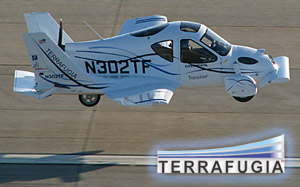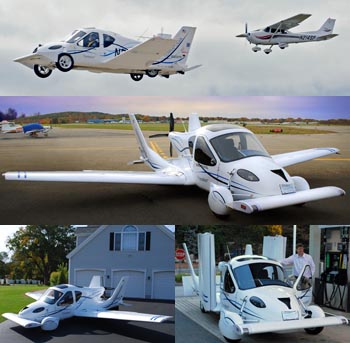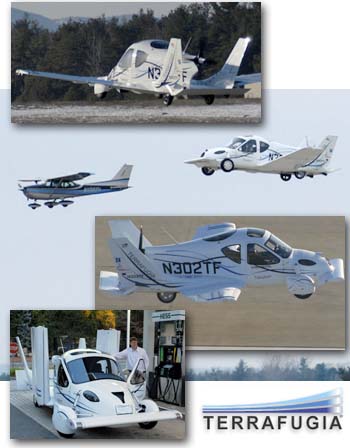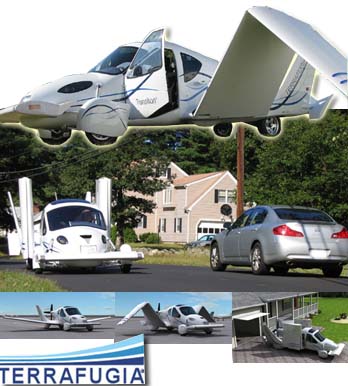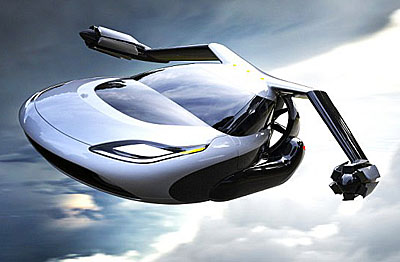
In a familiar theme, a Chinese company has acquired an American aircraft company. Past purchases include Cirrus Design, Mooney, Glasair, and Continental Motors, among others. This time news reports say a Chinese company bought a company from the light aircraft space: Terrafugia, maker of the Transition flying car, or as they prefer to call it, a roadable aircraft. Geely is an automaker based in Hong Kong that bought the famed Swedish car maker, Volvo. The Massachusetts airplane developer has put out slick video presentations of their newer-still model, the TF-X, a hybrid electric variation (video at bottom). I suspect it is this newer entry that has both automobile makers excited. Terrafugia first announced their Transition roadable airplane in 2006, flying a proof-of-concept aircraft in 2009 along with a demonstration before attendees of EAA AirVenture Oshkosh in 2013. The Massachusetts company built a second-generation Transition prototype in 2012.


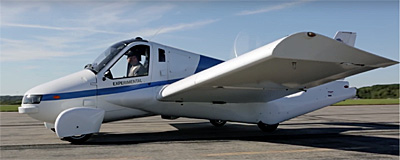
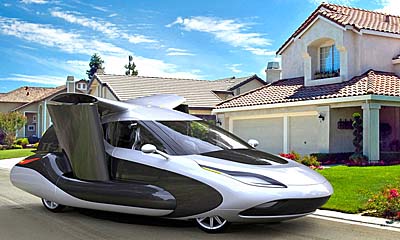 Terrafugia first announced their Transition roadable airplane in 2006, flying a proof-of-concept aircraft in 2009 along with a demonstration before attendees of
Terrafugia first announced their Transition roadable airplane in 2006, flying a proof-of-concept aircraft in 2009 along with a demonstration before attendees of 
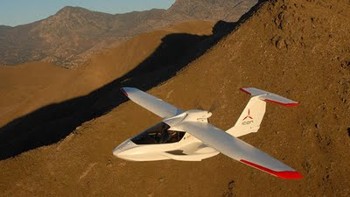



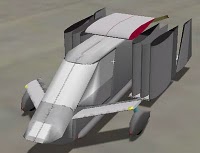



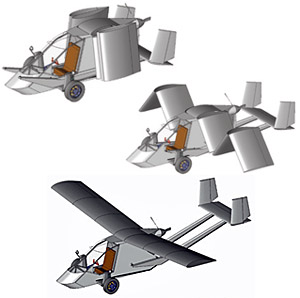 Call them "flying cars, flying motorcycles, flying dune buggies," or "roadable aircraft."
Regardless of the correct term, a growing wave of these car-to-airplane machines are in various stages of development and most will be at AirVenture 2010.
One of the newest entries is a kit with the lowest projected price among the group; all others are fully built and carry larger price tags. Check out the
Call them "flying cars, flying motorcycles, flying dune buggies," or "roadable aircraft."
Regardless of the correct term, a growing wave of these car-to-airplane machines are in various stages of development and most will be at AirVenture 2010.
One of the newest entries is a kit with the lowest projected price among the group; all others are fully built and carry larger price tags. Check out the 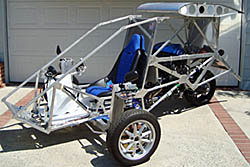 The better funded Terrafugia effort is leading the sector and recently basked in the warmth of media spotlights after winning a weight exemption from FAA. Their PR success may be boosting the fortunes of the others.
We've written about two four-wheelers:
The better funded Terrafugia effort is leading the sector and recently basked in the warmth of media spotlights after winning a weight exemption from FAA. Their PR success may be boosting the fortunes of the others.
We've written about two four-wheelers: 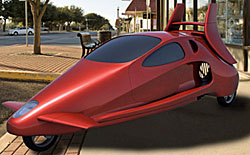 Taking a cue from Boeing, which kept its 747-8 home from the Farnborough show to pursue flight testing, Sampson Motorworks will not show their daring Switchblade as they did the last two years, but developer Sam Bousefield will give a forum on July 27 at 4 PM in Pavilion 08. The company's
Taking a cue from Boeing, which kept its 747-8 home from the Farnborough show to pursue flight testing, Sampson Motorworks will not show their daring Switchblade as they did the last two years, but developer Sam Bousefield will give a forum on July 27 at 4 PM in Pavilion 08. The company's 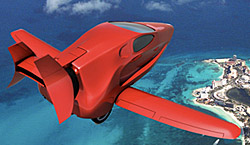 Joe Caravella, a father and son team, will conduct a forum on their project Monday July 26 at 10 AM in the 002 GAMA Pavilion. Afterwards, Oshkosh trekkies can pay a visit to the company's exhibit in space 97.
Hope we see you in Wisconsin — come by the
Joe Caravella, a father and son team, will conduct a forum on their project Monday July 26 at 10 AM in the 002 GAMA Pavilion. Afterwards, Oshkosh trekkies can pay a visit to the company's exhibit in space 97.
Hope we see you in Wisconsin — come by the 
